-
 Uganda president says opposition 'terrorists' in victory speech
Uganda president says opposition 'terrorists' in victory speech
-
New Zealand register first ODI series win in India despite Kohli ton

-
 Elvira wins Dubai Invitational after Lowry's last hole meltdown
Elvira wins Dubai Invitational after Lowry's last hole meltdown
-
Jeong snatches Union late draw at Stuttgart in Bundesliga

-
 Man Utd's Martinez hits back at Scholes after height jibes
Man Utd's Martinez hits back at Scholes after height jibes
-
Frank on the brink as Romero calls for unity amid Spurs 'disaster'

-
 Chile declares emergency as wildfires kill at least 15
Chile declares emergency as wildfires kill at least 15
-
Europe hits back at Trump tariff threat over Greenland
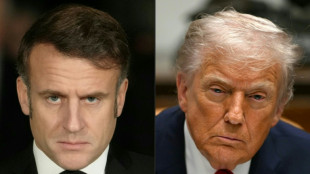
-
 Men's Fashion Week in Paris: what to watch
Men's Fashion Week in Paris: what to watch
-
McGrath goes top of slalom standings with Wengen win

-
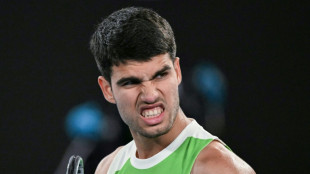 No Venus fairytale as Alcaraz, Sabalenka win Melbourne openers
No Venus fairytale as Alcaraz, Sabalenka win Melbourne openers
-
Iran considers 'gradually' restoring internet after shutdown
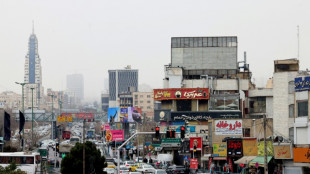
-
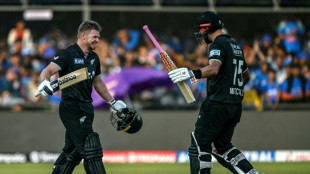 Mitchell, Phillips tons guide New Zealand to 337-8 in ODI decider
Mitchell, Phillips tons guide New Zealand to 337-8 in ODI decider
-
Flailing Frankfurt sack coach Toppmoeller
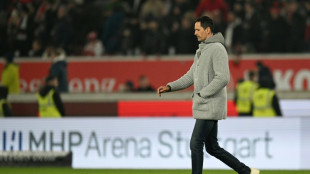
-
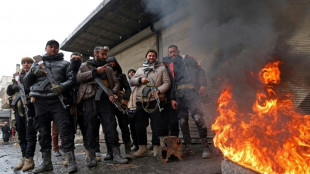 Kurdish forces withdraw from Syria's largest oil field as govt forces advance
Kurdish forces withdraw from Syria's largest oil field as govt forces advance
-
'Proud' Venus Williams, 45, exits Australian Open after epic battle
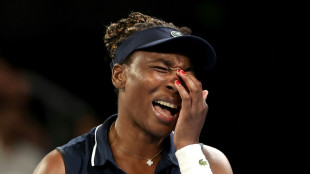
-
 Vonn in Olympic form with another World Cup podium in Tarvisio super-G
Vonn in Olympic form with another World Cup podium in Tarvisio super-G
-
Alcaraz kicks off career Grand Slam bid with tough Australian Open test

-
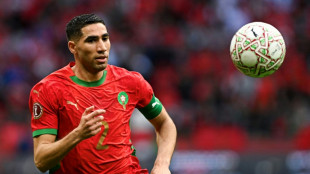 Hosts Morocco face Mane's Senegal for AFCON glory
Hosts Morocco face Mane's Senegal for AFCON glory
-
Europe scrambles to respond to Trump tariff threat
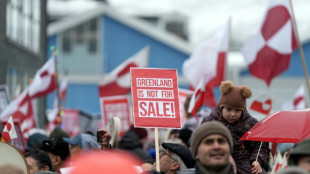
-
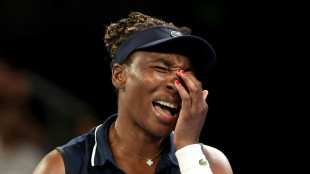 Venus Williams, 45, exits Australian Open after epic battle
Venus Williams, 45, exits Australian Open after epic battle
-
Taiwan's Lin wins India Open marred by 'dirty' conditions

-
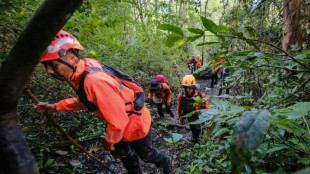 Indonesia rescuers find body from plane crash
Indonesia rescuers find body from plane crash
-
Kurdish-led forces withdraw from Syria's largest oil field: monitor
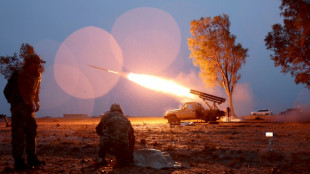
-
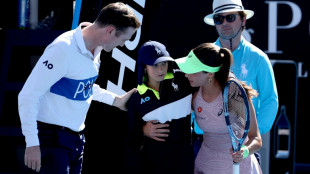 Ball girl collapses in Australian Open heat as players rush to help
Ball girl collapses in Australian Open heat as players rush to help
-
France's Moutet booed for underarm match point serve in Melbourne

-
 Zverev happy with response after wobble in opening Melbourne win
Zverev happy with response after wobble in opening Melbourne win
-
'Bring it on': UK's Labour readies for EU reset fight
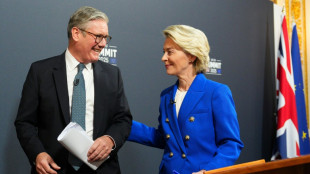
-
 New Zealand's Wollaston wins again to lead Tour Down Under
New Zealand's Wollaston wins again to lead Tour Down Under
-
Zverev wobbles but wins at Australian Open as Alcaraz enters fray
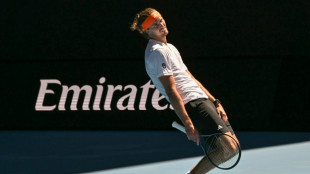
-
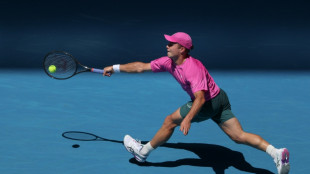 British qualifier upsets 20th seed Cobolli to make mum proud
British qualifier upsets 20th seed Cobolli to make mum proud
-
Zverev drops set on way to Australian Open second round

-
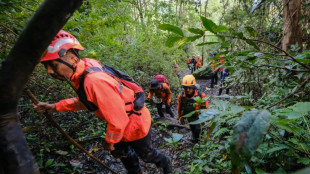 Indonesian rescuers find debris from missing plane
Indonesian rescuers find debris from missing plane
-
Wembanyama scores 39 as Spurs overcome Edwards, Wolves in thriller

-
 Heartbreak for Allen as Broncos beat Bills in playoff thriller
Heartbreak for Allen as Broncos beat Bills in playoff thriller
-
British qualifier upsets 20th seed Cobolli in Melbourne
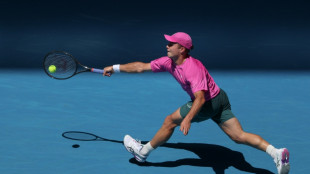
-
 Paolini races into round two to kickstart Australian Open
Paolini races into round two to kickstart Australian Open
-
Portugal presidential vote wide open as far-right surge expected
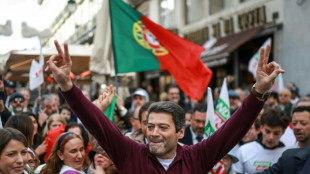
-
 Lutz kicks Broncos to overtime thriller as Bills, Allen fall short
Lutz kicks Broncos to overtime thriller as Bills, Allen fall short
-
Marchand closes Austin Pro Swim with 200m breaststroke win

-
 Raducanu says Australian Open schedule 'does not make sense'
Raducanu says Australian Open schedule 'does not make sense'
-
Australia great Martyn says he was given '50/50 chance' of survival
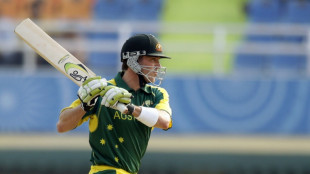
-
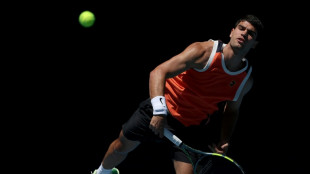 Top-ranked Alcaraz, Sabalenka headline Australian Open day one
Top-ranked Alcaraz, Sabalenka headline Australian Open day one
-
Haiti security forces commence major anti-gang operation
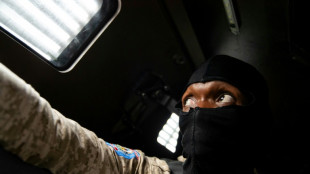
-
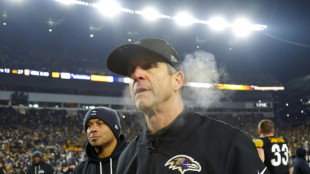 NFL's Giants ink John Harbaugh as new head coach
NFL's Giants ink John Harbaugh as new head coach
-
Skipper Martinez fires Inter six points clear, injury-hit Napoli battle on

-
 NASA moves moon rocket to launch pad ahead of Artemis 2 mission
NASA moves moon rocket to launch pad ahead of Artemis 2 mission
-
Silver reveals PSG talks over NBA Europe plan
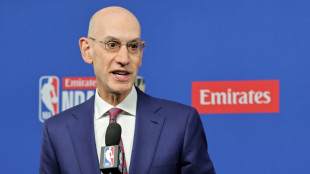
-
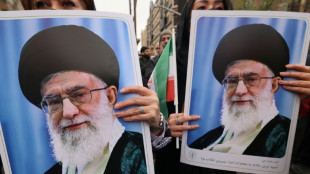 Iran leader demands crackdown on 'seditionists' after protests
Iran leader demands crackdown on 'seditionists' after protests
-
Carrick magic dents Man City Premier League bid as Arsenal held

Israel's Covert Nuclear Rise
Israel’s emergence as a nuclear power is one of the most secretive and controversial developments in modern geopolitics. While the country has never officially confirmed or denied possessing nuclear weapons, it is widely believed to have developed a sophisticated nuclear arsenal. This article explores the key milestones and strategies that enabled Israel to become a nuclear power while maintaining a policy of deliberate ambiguity.
The Early Beginnings
The origins of Israel’s nuclear program trace back to the 1950s, shortly after the nation’s establishment in 1948. In 1952, the Israel Atomic Energy Commission was created, led by Ernst David Bergmann, a scientist who saw nuclear weapons as essential for Israel’s survival amid regional threats. The young nation, surrounded by hostile neighbors, sought a deterrent that could ensure its security.
A critical step occurred in the late 1950s when Israel began constructing the Dimona nuclear facility in the Negev desert. With significant assistance from France, which provided technology and expertise, the facility was built under a veil of secrecy. Officially labeled a "textile factory," Dimona became the heart of Israel’s nuclear ambitions. By the mid-1960s, it is believed that Israel had produced its first nuclear weapon, though no official records confirm this timeline.
The Policy of Nuclear Ambiguity
Central to Israel’s strategy is its policy of "nuclear ambiguity." This approach avoids explicit confirmation or denial of nuclear weapons possession, allowing Israel to maintain deterrence without triggering an arms race or international backlash. Israeli leaders have adhered to this stance for decades, rarely commenting on their capabilities. However, in 2006, then-Prime Minister Ehud Olmert briefly listed Israel among nuclear-armed states in an interview, a rare slip that was swiftly minimized.
The Whistleblower’s Revelation
The secrecy surrounding Dimona was shattered in 1986 when Mordechai Vanunu, a former technician at the facility, leaked photographs and details to the public. His revelations suggested that Israel possessed between 100 and 200 nuclear warheads, confirming suspicions about its capabilities. Vanunu’s actions led to his abduction by Israeli intelligence and an 18-year prison sentence, underscoring the lengths Israel would go to protect its nuclear program.
Advanced Delivery Systems
Israel’s nuclear arsenal is thought to be supported by a range of delivery systems. The Jericho series of ballistic missiles, initially developed with French assistance, can reportedly carry nuclear warheads over thousands of kilometers. Additionally, Israel’s fleet of Dolphin-class submarines, acquired from Germany, is rumored to be equipped with nuclear-tipped cruise missiles, offering a second-strike capability that enhances its deterrence.
International Stance and Regional Tensions
Israel has never joined the Nuclear Non-Proliferation Treaty (NPT), a decision that has drawn criticism, especially from regional rivals like Iran. Israeli officials maintain that they will not be the first to introduce nuclear weapons into the Middle East, a statement crafted to preserve ambiguity. In recent years, tensions with Iran over its nuclear program have spotlighted Israel’s own capabilities, with Israeli leaders advocating strong measures to prevent Tehran from achieving similar status.
A Lasting Legacy
Israel’s journey to nuclear power relied on strategic partnerships, covert operations, and a steadfast commitment to secrecy. While the full scope of its arsenal remains undisclosed, its status as a nuclear power is rarely questioned today. This reality continues to influence Middle Eastern geopolitics, shaping both regional dynamics and global efforts to curb nuclear proliferation.

EU vs. Hungary: Lawsuit over ‘national sovereignty’ law

Ukraine: Zelenskyy appeals for international aid

Lebanon: Is a new wave of refugees coming to the EU?

Terrorist state Iran attacks Israel with missiles

Belarus: ICC investigates dictator Lukashenko

NATO: Ukraine ‘at the top of the list!’

NATO is training to fight cyber attacks

Digital Ocean Twin: Protecting the Oceans

What is the outlook for France’s economy?

How melting Alpine glaciers affect valleys

The EU Commission and its climate targets?




